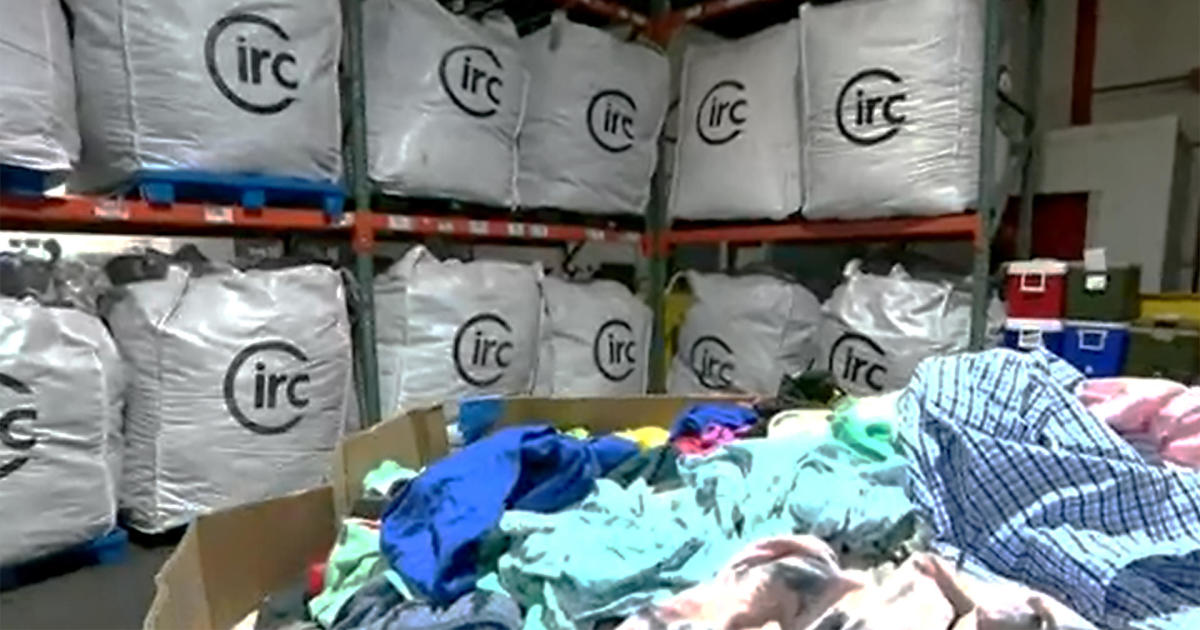
A climate tech startup — and Earthshot Prize finalist — designs new method to reduce clothing waste
CBSN
What generally happens when clothes go out of style is giving the fashion industry a bad look. "The fashion and textile industry is one of the most wasteful industries in the world," said Conor Hartman, chief operating officer of Circ, a climate tech startup trying to refashion the clothing industry. "The world is producing more than 100 million tons of textiles every 12 months. It's equivalent in weight to a million Boeing 757s."
According to the United Nations Environment Programme, the fashion industry is responsible for about 10% of annual planet-warming greenhouse gas emissions, mainly through manufacturing and transportation of clothing. That's more than the emissions of all international air travel and maritime shipping combined. And The World Bank reports that, because of the growth of cheap, trendy clothing called "fast fashion," those emissions are projected to increase by more than 50% by 2030.
Some used clothing is exported to foreign countries, where it's piled up on the western shores of Africa, or dumped in the deserts of Chile. "Most of it is ending up in landfills or incineration," said Hartman. "There's a garbage truck of fashion waste that is dumped every second of every day."





















 Run 3 Space | Play Space Running Game
Run 3 Space | Play Space Running Game Traffic Jam 3D | Online Racing Game
Traffic Jam 3D | Online Racing Game Duck Hunt | Play Old Classic Game
Duck Hunt | Play Old Classic Game